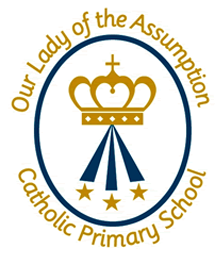OLA Curriculum Intent
When planning our curriculum at OLA, we will ensure that it is: BROAD AND BALANCED, EXPERIENTIAL, RELEVANT, ASPIRATIONAL, LANGUAGE-RICH, ENQUIRY-BASED and IMMERSIVE
Experiential so that children reinforce their understanding through first-hand experience. Learning is linked to experiences beyond school, drawing on the local area and further afield. Children are active, not passive learners. Children increase their cultural capital.
Relevant to the children so that they can engage in their learning. Children see learning as purposeful and they enjoy their learning. Children are taught the knowledge and skills that are important to be able to achieve more. Reading is central to all areas of the curriculum. Children understand how they learn and the importance of committing learning to long term memory. Christ is at the centre of our curriculum, enabling children to use the knowledge they acquire to know more about God and about how to live a Christian life in the world.
Aspirational so that all children, including those with SEND or from a disadvantaged background, achieve their full potential. Children develop resilience as learners. Barriers to learning are identified and overcome. All children show enthusiasm for learning.
Language-rich so that all children develop a wide vocabulary which enables them to fully access and understand the curriculum content and prepares them to access they next stage of their education. Children are proficient in using the vocabulary they need to effectively communicate in different subject areas. Through reading, discussion and experiences children develop a love of language and a desire to understand how language works.
Enquiry-based so that children can deepen their thinking and apply their knowledge in new situations.
Immersive so that the children can make links between different subjects. All children are engaged, inspired and challenged whilst deepening their knowledge in different contexts.
Implementation
- Teachers plan ‘Launch Days’ to enthuse the children and promote curiosity for a new topic.
- Teachers are clear about the end-points for learning.
- Learning is sequenced so that it makes sense to the children and enables them to deepen their knowledge and skills. Teachers know how the curriculum is sequenced across the school so that they can build effectively on previous learning.
- Teachers plan visits which enhance learning and deepen the children’s knowledge, skills and cultural capital.
- Links with outside agencies ensure children have access to expertise which enhances the curriculum.
- Teachers receive appropriate CPD to ensure that they can effectively deliver the knowledge and skills required.
- Children are offered enrichment opportunities (including extra-curricular) to further develop knowledge and skills.
- Teachers to plan for regular retrieval practice and informal low-stakes testing. This includes revisiting learning from previous years.
- Teachers promote opportunities for questioning and discussion around Gospel Values (Diocesan Values and Virtues) in all areas of the curriculum (e.g. through P4C).
- Content is planned and delivered in a way which ensures that all pupils, especially disadvantaged and SEND, can fully access it. Children are able to record their learning in different ways.
- Teachers identify specific knowledge and skills to be taught and assess what children have retained in the long-term. Teachers adapt teaching to avoid gaps in knowledge and skills.
- Teachers provide regular opportunities to explore and use vocabulary across the curriculum; teachers plan opportunities to explore language through talk. Children are taught the technical vocabulary they need to fully access different subjects.
- Children have access to high quality and age-appropriate reading materials (including through the reading scheme) which support all areas of the curriculum.
Curriculum maps for each year group can be found on the Class Pages.

